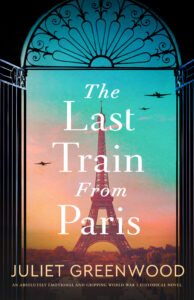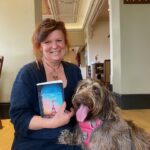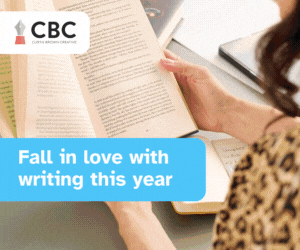The Last Train From Paris By Juliet Greenwood
8 November 2023
 We are delighted that you could join us to talk about your new release. Could you tell us a little more about it? The Last Train from Paris is my second book with Storm Publishing. It’s a dual time story set in the 1960s and the Second World War, in France, London and Cornwall.
We are delighted that you could join us to talk about your new release. Could you tell us a little more about it? The Last Train from Paris is my second book with Storm Publishing. It’s a dual time story set in the 1960s and the Second World War, in France, London and Cornwall.
It opens in 1964, when student Iris returns to Cornwall determined to find out more about her past and why she is adopted. Her mother gives her a metal tin filled with letters and postcards from the Second World War, including a postcard of Paris containing the word ‘Forgive’. Slowly, Iris begins to uncover a story of twin baby girls, separated for their own survival on the day war broke out, and the two women, one French, one English, who struggle against the odds to keep them safe. She finds a tale of love, courage and determination, both amongst the blitz in London and the flight of refugees from Paris towards safety in a country torn apart by war, facing the extremes of kindness and cruelty along the way. But there is a dark secret at the heart of this story, one from which Iris has been protected all her life. With a journalist at her mother’s door, determined to uncover the family’s links to a murdered woman and a Nazi fleeing justice, it’s a past that Iris must now face; one that will change her life, and her future, forever.
What was the inspiration behind your book? What prompted you to tell this story? The story of The Last Train from Paris was inspired by finding the letters my mum had exchanged with her sweetheart (who later became my dad) when Mum was studying French near Paris as a seventeen-year-old, and he was working in London. They are just sweet letters between girlfriend and boyfriend until you see the postmarks and realise this is late August 1939, with the last one just days before the war broke out.
Finding them really brought to life the stories Mum used to tell me of having to catch the last train from Paris that would get her to the final civilian ferry to Dover, of the scenes she saw on the way, and of waiting, like Nora in the novel, in darkness and the silence as her ferry was stalked by a German submarine. They also really brought to life the bits I caught as a child of the experiences of Mum’s French friends and family who had experienced occupation and total war, some of whom had made the terrifying journey Sabine is forced to take in a desperate bid to reach safety.
These memories made me really passionate to tell the extraordinary experiences of the ‘ordinary’ people caught up in war, and in particular the different generations of women who work together with extraordinary courage and resilience to make sure those they love – and in particular the children – survive to build a new future.
Without giving too much away, what was the hardest part of the book to write? One of the hardest scenes to write was when Sabine with her baby, along with her mother and indomitable grandmother, join the rest of the refugees fleeing south from Paris as the German army invades. It’s not something that happens to them, but something they pass on the way. The scene had arisen from my research, but while I was in the process of writing this part of the book the war in Ukraine began. I was suddenly seeing on the TV Ukrainian refugees fleeing the brutality of an invading army with similar experiences.
For two weeks I stopped. How could I write something as a fiction when it was happening to real civilians, to real women and children, now, this minute? This wasn’t entertainment. Then I remembered the stories my mum had told me, and felt stronger than ever that I wanted to tell the experience of war from the civilians’ point of view. It felt like honouring the experience, if that makes sense. War isn’t just the battles and heroic acts that end up in history books, it’s the upheaval and tragedy, and the clinging to hope and survival, experienced by vast swathes of humanity, who could so easily be you and me. And the scene in the book does also bring a joyous new life to accompany Sabine and her family on their journey towards safety.
What was your journey to publication? Like most authors, mine was a long and winding road to publication, building up experience bit by bit. I was impatient at the time, but now I realise just how much all those different experiences have taught me, and how the years of rejection made me more determined and more critical of my own work along the way.
I started with writing stories for magazines, mainly The People’s Friend and My Weekly, followed by serials and pocket novels. These were great for learning to work to editorial expectations and trying out the structure of stories on a small scale with the pocket novels. I also went through the New Writer’s Scheme, which was brilliant and taught me so much, until my first Pocket Novel was accepted. Then, out of the blue, a friend suggested that one of my stories for My Weekly might make the basis of a novel.
I fell in love with the idea, wrote it, and submitted it to Honno, a small Welsh Women’s Press, based in Aberystwyth. It wasn’t accepted, but I was given the opportunity to work with one of their editors, the amazing Janet Thomas, who became my mentor for a year. Being properly edited was a total shock to the system, challenged me to the core and made me question everything about my writing. That year changed me as an individual, as well as a writer, and became the most exhilarating rollercoaster of my life. It ended with my first book, Eden’s Garden, being accepted for publication, followed by two more. This then enabled me to find my wonderful agent, Judith Murdoch, and have two novels published by Orion, followed by being taken up as one of the first books signed by Storm.
It’s twenty years since my very first published writing, a Christmas short story in The People’s Friend, appeared. I wish I’d known then what I know now, but I’ve also learnt that finding your own voice, as well as the subjects that passionately inspire you, is an organic process. Like any highly skilled profession, writing takes time to develop and I’m still learning and changing. I always start off a first draft convinced I can’t do this, and send off the final proofs totally drained and swearing I’ll get a life and never put myself through that again. But of course we always do!
If you could give your younger writing self any advice, what would it be? The best advice I ever heard was that if someone picks up the violin, they don’t expect to be playing solos at the Last Night of the Proms in the Albert Hall within a week. We all recognise that any musical instrument takes time to perfect, as well as for the player to become accustomed to the stress of playing in front of a live audience. And the highest skill is displayed when playing appears effortless. It’s just the same with writing. It takes time, and every process is part of the learning curve, and an opportunity to question and refine writing skills. So don’t be so hard on yourself and, as long as you love it, just keep going. Take every opportunity to get advice and feedback. Oh, and don’t forget to live your life as well. That, after all, is the basis of all research!
Can you tell us what you are working on now? I am currently working on the edits for the second book in The Shakespeare Sisters, also for Storm, which is due out in 2024. The story follows Kate, the not-quite-sister as she sets off to find the secrets of her birth mother. I’ve loved writing this, as Kate’s journey takes her from Cornwall to Italy, including an abandoned villa near Naples, with diversions to Pompeii and the summit of Vesuvius, followed by a trail that leads her to the islands of Venice. It’s a journey of self-revelation, but also filled with peril, as Kate’s true identity is one a mysterious enemy will do anything to prevent coming to light, and may also have devastating consequences for Arden House and the only family she has ever known…
About the Author
 Juliet Greenwood is the author of seven historical novels, her latest being with Storm Publishing. She has long been inspired by the histories of the women in her family, and in particular with how strong-minded and independent women have overcome the limitations imposed on them by the constraints of their time, and also with the way generations of women hold families and communities together in times of crisis, including WW2.
Juliet Greenwood is the author of seven historical novels, her latest being with Storm Publishing. She has long been inspired by the histories of the women in her family, and in particular with how strong-minded and independent women have overcome the limitations imposed on them by the constraints of their time, and also with the way generations of women hold families and communities together in times of crisis, including WW2.
After graduating in English from Lancaster University and Kings College, London, Juliet worked on a variety of jobs to support her ambition to be a full-time writer. These ranged from running a craft stall at Covent Garden to collecting oral histories of traditional villages before they are lost forever, and more recently as a freelance editor and proof-reader.
She finally achieved her dream of becoming a published author following a debilitating viral illness, with her first novel being a finalist for The People’s Book Prize and her first two novels reaching #4 and #5 in the UK Kindle store.
Juliet now lives in a traditional quarryman’s cottage in Snowdonia, North Wales, set between the mountains and the sea, with an overgrown garden (good for insects!) and a surprisingly successful grapevine. She can be found dog walking in all weathers, camera to hand.
Buy the book here: The Last Train from Paris: https://geni.us/290-al-aut-am
Author Website: http://www.julietgreenwood.co.uk/
Facebook: https://www.facebook.com/juliet.greenwood
Twitter: https://twitter.com/julietgreenwood
Instagram: https://www.instagram.com/julietgreenwood/


